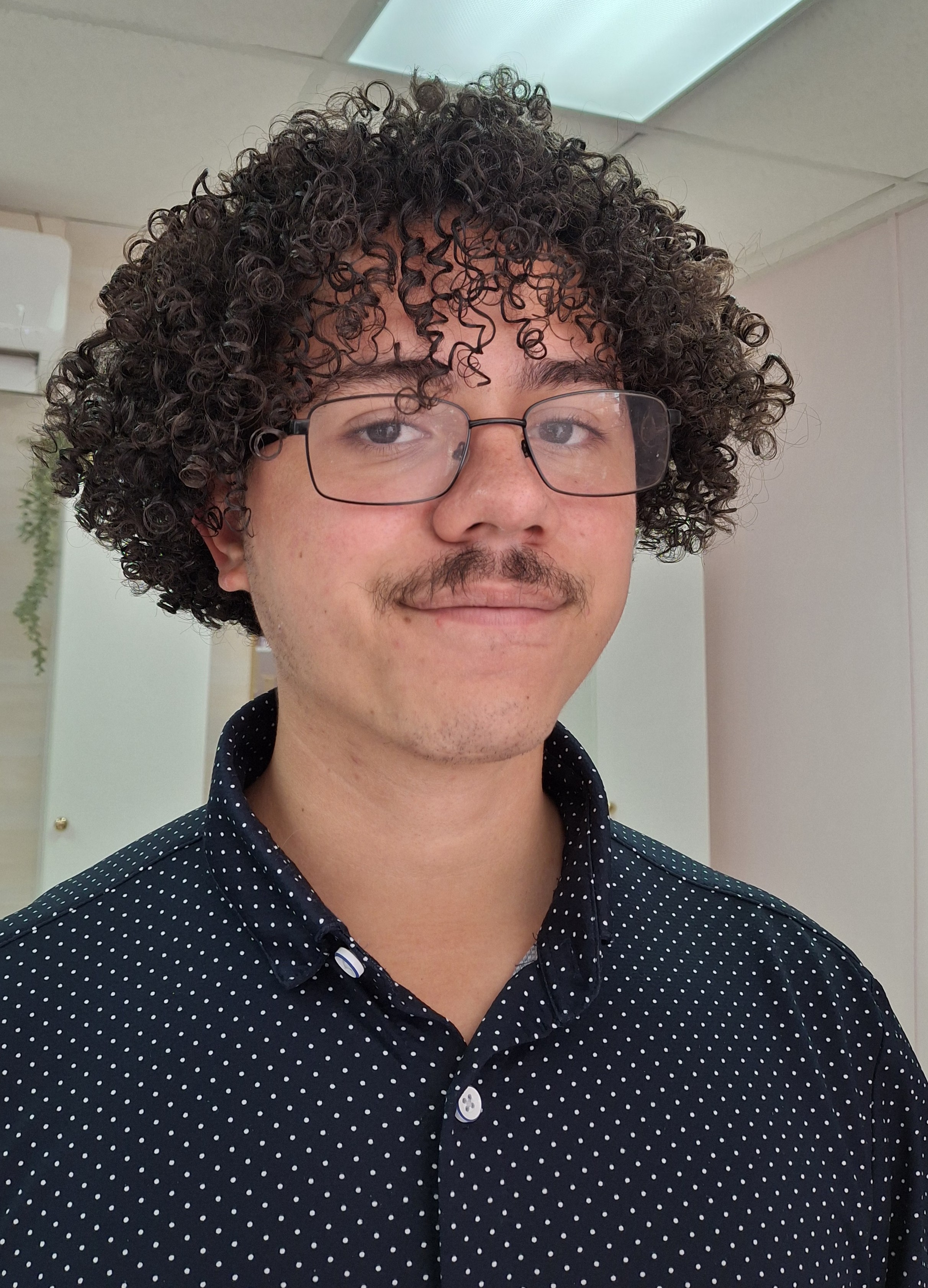for Webflow

Doel Alexander Rivera Laboy was born and raised in Ponce, Puerto Rico and is currently a fourth-year Ph.D. candidate at the University of Kentucky. He did his undergraduate studies in his hometown, at the Pontifical Catholic University of Puerto Rico, where he was the last math major to graduate before the program was ended due to low enrollment. Currently, he studies chip firing on graphs, an area in the intersection of algebra and graph theory, under his advisor David Jensen. Throughout his studies he has focused on teaching and mentoring, being a mentor to students in high school and college alike. He aims to continue this work because he knows first-hand the impact a good teacher or mentor can have.
In elementary and middle school, he believed himself to be bad at math and disliked the subject altogether. He had a teacher which empowered him to explore math in a different way than others had, allowing for his passion for mathematics to grow by teaching and explaining math to others. Looking for alternate methods and explanations brought life to a subject that was often framed as the “difficult class”. This lived experience informs his current teaching philosophy and professional goals.
In undergrad, he worked on algebraic coding theory and combinatorics research. His coding theory projects worked with linear algebra, but the objects and results were highly related to algebraic geometry. In graduate school, he works on chip firing which lies in the intersection of algebra and graph theory, but the theory is inspired by and speaks to algebraic geometry. Altogether, his main interests lie in working at the intersection of various branches of math. He enjoys finding new areas to pull tools and results from, rather than being limited to one branch of mathematics.
During undergrad, he worked both as a private tutor and as a tutor for his university’s tutoring center. Through the Upward Bound Program, he was able to be a math tutor and mentor for Ponce public school students from low-income households. The aim of this program is to not only help students through high school but also give them the tools and pathway towards going to college when otherwise they may have been unable to. This program deepened his passion for teaching and reinforced the impact a good math teacher can have.
After participating in 2019 and 2020 in the University of Puerto Rico-East Tennessee State University summer research experience for undergraduates (REU), in 2021 he had the opportunity to return as a peer mentor for the REU. There he focused on using his past experiences to guide students not only through the math, but also the process of doing research. That summer, his mentoring was to students in both coding theory and combinatorics projects. Since then, he has given talks with advice for applying to graduate schools at the 2022, 2023 and 2024 REUs. In summer of 2025, he returned as a graduate student mentor to the REU, taking the role of peer mentor and leading an undergraduate project.
Currently he is a teaching assistant at the University of Kentucky. There he has been a recitation leader mainly for calculus classes and a college algebra course, and he was a primary instructor for the “Mathematics for Elementary School Teachers” sequence.
He strongly believes that the role of a math educator cannot be limited to only teaching math. Often times, especially in underrepresented groups, students come into the classroom already believing that they cannot do math. This is a role where we break away from past stigma, where we foster creative thinking, and pave the way for acquiring tools that will be helpful in and outside of the classroom. As an instructor, his goal is to make sure that the students believe themselves capable of learning/doing math. He believes it is a mistake to limit math to a “recipe” that is followed to solve problems on a test. He focuses on understanding the process and building a good foundation of problem-solving skills that are applicable to other problems that may not immediately seem alike.
“Being from Puerto Rico, we have a long history of a mix of different cultures and people coming together to form what we know today as a ‘Puerto Rican’. Because of that, every day I see people who may not physically look like me, but they do call the same island home. To me, Hispanic Heritage month is a time where we can feel a sense of a community through our shared past and living experiences. This is a month where we can celebrate what we share and highlight how far we’ve come.”